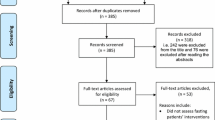Abstract
Background Type 2 diabetes is highly prevalent among people of Pakistani background. Studies show that adherence to medicines is complicated for people with type 2 diabetes in general. Also, studies indicate that many people with type 2 diabetes and Muslim background fast during the month of Ramadan without adequate counselling on how to adjust their medicines. Objective To explore patient perspectives on medicine use during Ramadan, reasons for fasting and experiences with counselling on medicine use during Ramadan among people of Pakistani background with type 2 diabetes and at least one other chronic condition. Setting Greater Copenhagen, Denmark. Method The analysis is based on a study exploring lived experiences with counselling on medicines using semi-structured interviews and medication reviews. The analysis presented here builds on the subset of patients with Pakistani background (six interviewers). Results All interviewees pointed out that Islam allows ill people to refrain from fasting during Ramadan. However, all had fasted during Ramadan despite being diagnosed with type 2 diabetes. While fasting, they adapted their use of medicines in different ways, e.g. by changing the time of intake or by skipping morning medicines. Fasting during Ramadan meant a feeling of improvement in well-being for all interviewees. Reasons for this improvement included physiological, social and religious aspects. Healthcare professionals were rarely included in the decision-making process on whether or not to fast. Instead, friends and relatives, especially those with type 2 diabetes, were considered important to the decision-making process. Conclusion For people with Muslim background and a chronic condition, fasting during Ramadan may mean changes in medicine use that are not always discussed with healthcare professionals. Healthcare professionals should acknowledge that Muslim patients may find fasting during Ramadan beneficial to their well-being and therefore choose to fast despite the Islamic rule of exemption. This patient-centred approach to counselling on medicines may facilitate better medicine use and thus better clinical health outcomes among patients that choose to fast.
Similar content being viewed by others
References
Garduño-Diaz SD, Khokhar S. Prevalence, risk factors and complications associated with type 2 diabetes in migrant South Asians. Diabetes Metab Res Rev. 2012;28(1):6–24.
Wändell PE, Carlsson A, Steiner KH. Prevalence of diabetes among immigrants in the Nordic countries. Curr Diabetes Rev. 2010;6(2):126–33.
Haugbølle LS, Sørensen EW. Drug-related problems in patients with angina pectoris, type 2 diabetes and asthma - interviewing patients at home. Pharm World Sci. 2006;28:239–47.
WHO. Adherence to long-term therapies. Switzerland: WHO; 2003. ISBN:9241545992.
Sadiq A. Managing the fasting patient: sacred, ritual, modern challenges. In: Sheikh A, Gatrad AR, editors. Caring for muslim patients. Oxford: Radcliffe Publishing Ltd; 2000. p. 73–87. ISBN 1857753720.
Bissell P. Lay and professional accounts of non-compliance with treatment amongst people of Pakistani origin with type 2 diabetes. School of Pharmacy and Pharmaceutical Sciences: University of Manchester; 2000.
Benaji B, Mounib N, Roky R, Aadil N, Houti IE, Moussamih S, et al. Diabetes and Ramadan: review of the literature. Diabetes Res Clin Pract. 2006;73(2):117–25.
Ahmedani MY, Haque MS, Basil A, Fawwad A, Alvi SF. Ramadan Prospective Diabetes Study: the role of drug dosage and timing alteration, active glucose monitoring and patient education. Diabet Med. 2012;26(6):709–15.
Al-Arouj M, Assaad-Khalil S, Buse J, Fahdil I, Fahmy M, Hafez S, et al. Recommendations for management of diabetes during Ramadan. Diabetes Care. 2010;33(8):1895–902.
Sheikh A, Wallia S. Ramadan fasting and diabetes. BMJ. 2007;335(7620):613–4.
Håkonsen H, Toverud EL. Cultural influences on medicine use among first-generation Pakistani immigrants in Norway. Eur J Clin Pharmacol. 2012;68(2):171–8.
Salti I, Bénard E, Detournay B, Biachi-Biscay M, Le Brigand CL, Vionet C, et al. A population-based study of diabetes and its charachteristics during the fasting month of Ramadan in 13 countries. Diabetes Care. 2004;27(10):2306–11.
Gaborit B, Dutour O, Ronsin O, Atlan C, Darmon P, Gharsalli R, et al. Ramadan fasting with diabetes: an interview study of inpatients’ and general practitioners’ attitudes in the South of France. Diabetes Metab. 2011;37(5):395–402.
Wallin AM, Löfvander M, Ahlström G. Diabetes: a cross-cultural interview study of immigrants from Somalia. J Clin Nurs. 2007;16(11C):305–14.
Pollock K. Concordance in medical consultations—a critical review. Oxford and Seattle: Radcliffe Publishing; 2005. ISBN:101857758412.
Helman CG. Doctor-patient interactions. In: Culture, health and illness. 5th ed. London: Hodder Arnold; 2007. p. 121–55. ISBN:9780340914502.
Kleinman A. Patients and healers in the context of culture: an exploration of the borderland between anthropology, medicine, and psychiatry. Berkeley: University of California Press; 1980. ISBN 9780520037069.
Kleinman A, Benson P. Anthropology in the clinic: the problem of cultural competency and how to fix it. PLoS Med. 2006;3(10):1673–6.
Dahlager L, Fredslund H. Hermeneutic analysis—understanding and pre-understanding. In: Vallgårda S, Koch L, editors. Research methods in public health. Copenhagen: Gyldendal Akademisk; 2008. p. 159–84. ISBN 9788762807945.
World Medical Association. World Medical Association Declaration of Helsinki: Ethical principles for medical research involving human subjects. Helsinki: World Medical Association; 2008.
Stige B, Malterud K, Midtgarden T. Toward an agenda for evaluation of qualitative research. Qual Health Res. 2009;19:1504–16.
Pathy R, Mills KE, Gazeley S, Ridgley A, Kiran T. Health is a spiritual thing: perspectives of health care professionals and female Somali and Bangladeshi women on the health impacts of fasting during Ramadan. Ethn Health. 2011;16(1):43–56.
Mir G, Sheikh A. ‘Fasting and prayer don’t concern the doctors … they don’t even know what it is’: communication, decision-making and perceived social relations of Pakistani Muslim patients with long-term illnesses. Ethn Health. 2011;15(4):327–42.
Acknowledgments
We wish to thank all interviewees and Farhat Shaheen who assisted as interpreter and contact person for the patients.
Funding
The study is supported by the School of Pharmaceutical Sciences (former Faculty of Pharmaceutical Sciences), University of Copenhagen, Denmark, with supplementary funding from The 1991 Pharmacy Foundation (The Danish Pharmaceutical Association) and The Danish Actavis Grant.
Conflicts of interest
None.
Author information
Authors and Affiliations
Corresponding author
Rights and permissions
About this article
Cite this article
Mygind, A., Kristiansen, M., Wittrup, I. et al. Patient perspectives on type 2 diabetes and medicine use during Ramadan among Pakistanis in Denmark. Int J Clin Pharm 35, 281–288 (2013). https://doi.org/10.1007/s11096-012-9716-1
Received:
Accepted:
Published:
Issue Date:
DOI: https://doi.org/10.1007/s11096-012-9716-1




